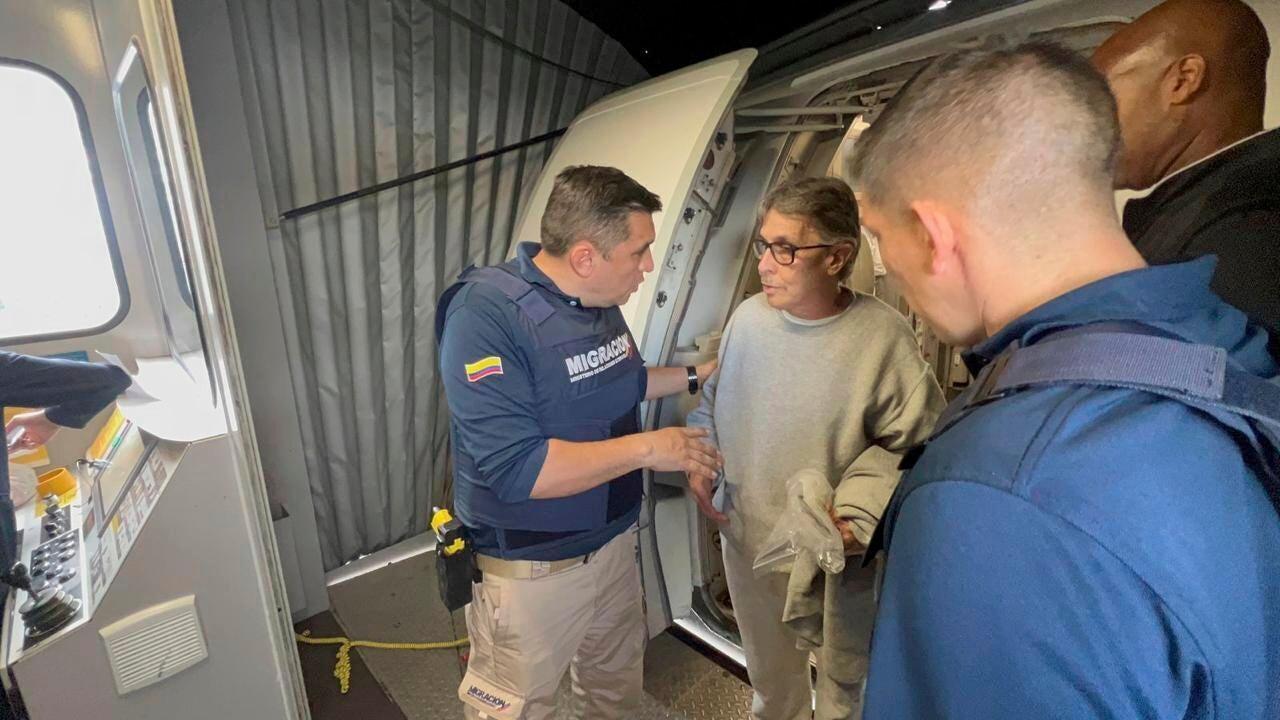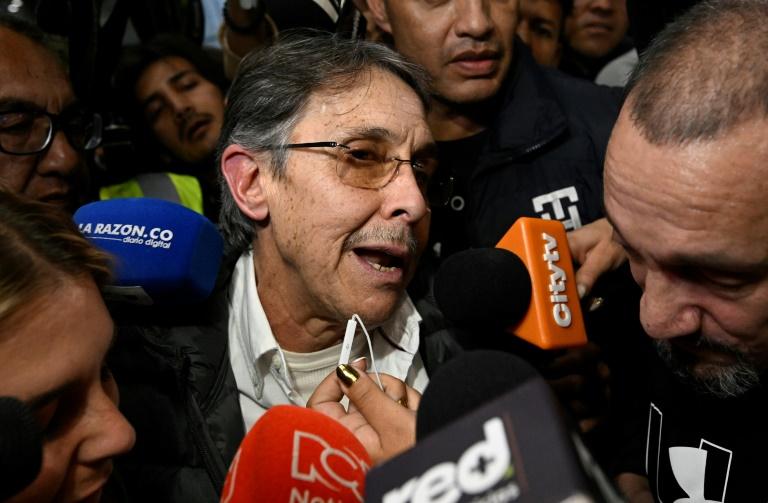In the shadowy world of narcotics trafficking, few names evoke as much intrigue and notoriety as Fabio Ochoa, a key figure in Colombia’s infamous Medellín Cartel. After two decades behind bars in the United States, the once-powerful drug lord has returned to his homeland, walking free under the watchful eyes of a nation that has both reviled and romanticized his turbulent legacy. His journey from the pinnacle of international cocaine trade to federal imprisonment and now, unexpected liberation, reads like a screenplay where reality dramatically outpaces fiction. In a startling turn of events, Fabio Ochoa, a former kingpin of the notorious Medellín Cartel, has returned to Colombian soil after two decades of incarceration in the United States. The drug lord’s deportation marks a significant moment in the complex narrative of Colombia’s tumultuous drug trafficking history.
Ochoa, once a central figure in Pablo Escobar’s legendary criminal empire, walked free upon landing in Bogotá, sending shockwaves through both law enforcement and criminal circles. His release highlights the intricate legal and diplomatic channels that have shaped international drug trafficking prosecutions over the past few decades.
During his time in American prisons, Ochoa witnessed dramatic shifts in the global drug trade landscape. The cartel structures that once dominated have transformed, giving way to more decentralized and technologically sophisticated trafficking networks. Despite his long imprisonment, Ochoa’s reputation remained intact among certain underground circles.
The deportation process involved complex negotiations between Colombian and US authorities, reflecting the ongoing diplomatic challenges surrounding drug-related criminal prosecutions. Ochoa’s return symbolizes a broader pattern of aging drug lords finding themselves navigating a dramatically changed criminal ecosystem.
Sources close to the case suggest that Ochoa’s release comes with implicit understanding and potential agreements with Colombian judicial authorities. His knowledge of historical trafficking routes and networks potentially represents valuable intelligence for current law enforcement strategies.
The Medellín Cartel veteran’s journey from a powerful drug trafficker to a deportee highlights the evolving dynamics of international criminal justice. While his operational days are likely behind him, Ochoa remains a potent symbol of a tumultuous era in Colombian history.
Local and international observers are closely monitoring his movements and potential interactions, given his extensive historical connections within criminal networks. The possibility of him providing insights into past operations remains an intriguing prospect for investigators.
Ochoa’s story continues to captivate public imagination, representing a complex chapter in the ongoing saga of drug trafficking, international law enforcement, and geopolitical negotiations. His return to Colombia marks not just a personal milestone, but a broader reflection of how transnational criminal justice systems operate in the 21st century.
As he adapts to life outside American prison walls, the legendary drug lord becomes another fascinating footnote in Colombia’s intricate narrative of crime, punishment, and eventual transformation.
